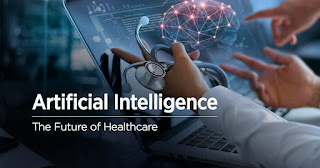Navigating the Future of Artificial Intelligence in Healthcare
Artificial Intelligence (AI) tools have undoubtedly demonstrated their potential to revolutionize the healthcare sector, yet their implementation often faces challenges related to transparency, ethical considerations, and the scarcity of evaluations in clinical settings. AI is proving to be an effective tool in enhancing health service administration, with its integration into routine clinical care on the horizon. However, concerns surrounding the ethical and legal implications of introducing AI in healthcare continue to be raised, focusing on risks of bias, unclear AI model training, security issues, and the responsibilities of AI implementation in clinical settings. These ethical challenges encompass aspects of safety, efficacy, privacy, information and consent, individual rights, financial considerations, and access. Additionally, a shortage of AI-skilled specialists remains a significant hurdle to the successful implementation of artificial intelligence in healthcare.
The Future of Artificial Intelligence in the Healthcare Sector
The future of AI in healthcare promises to standardize and enhance healthcare services for the benefit of both patients and healthcare professionals. This transformative intelligence aims to make healthcare more cost-effective and accurate through AI-powered care. The healthcare landscape is set to undergo substantial changes, with AI-powered robots becoming integral in patient care. These robots will interact with patients, assess their health conditions, and determine the necessity for further medical consultations. The potential applications of AI in healthcare are vast, spanning from mobile coaching solutions to drug discovery, promising a future of improved patient care and reduced costs. Tomorrow’s healthcare will seamlessly integrate patient medical history, real-time health data, insurance coverage, and financial information to support healthcare providers’ decision-making, enhance patient health outcomes, and reduce expenses.

In the coming years, AI-powered robots will be capable of executing complex and high-risk medical procedures. Although this may sound like science fiction, it has the potential to revolutionize healthcare. Future AI robots will assume responsibilities such as handling radioactive materials and defusing bombs, making healthcare and other fields safer. By 2030, the concept of a hospital will evolve, focusing on acute care and complex medical procedures. Less urgent cases will be managed through smaller hubs and clinics, including retail clinics, same-day surgery centers, specialist treatment clinics, and even patients’ homes. These locations will be interconnected through a single digital infrastructure, monitored in real-time by centralized command centers that analyze clinical and location data. This network aims to identify patients at risk, remove bottlenecks in the healthcare system, and ensure that patients and healthcare professionals are directed where their care is most needed.
Conclusion
The implementation of AI in healthcare is essential for enhancing health service management and medical decision-making. However, the challenge lies in facilitating the early adoption and ongoing integration of AI in the healthcare system. Ethical issues and considerations surrounding AI in clinical applications remain a significant focus, and it is hoped that these challenges can be addressed and resolved as AI continues to shape the future of healthcare.


